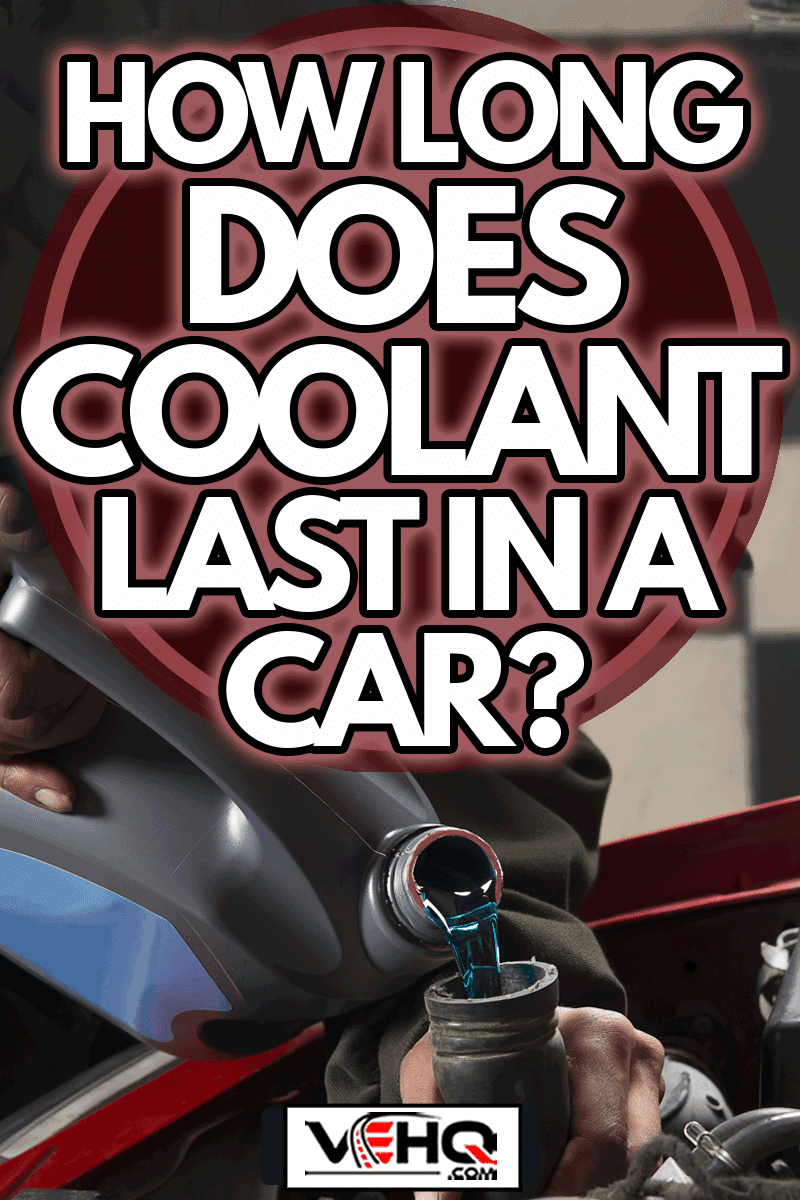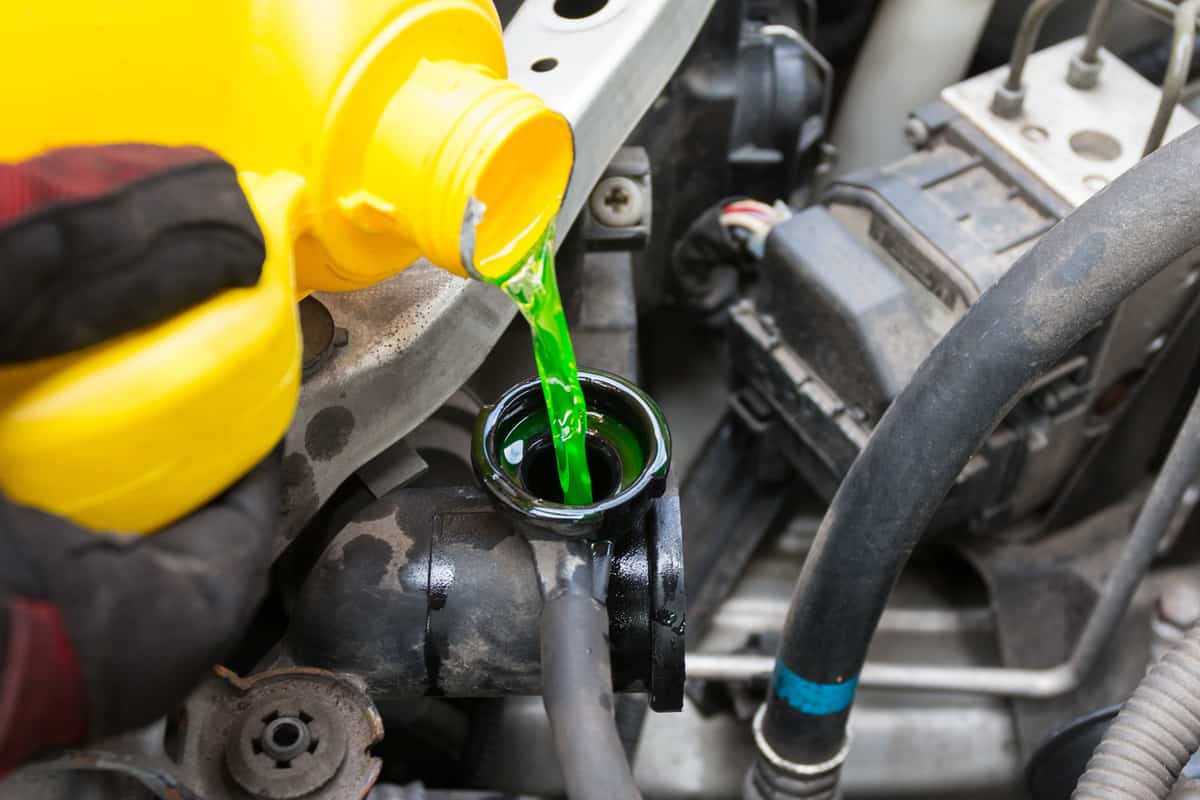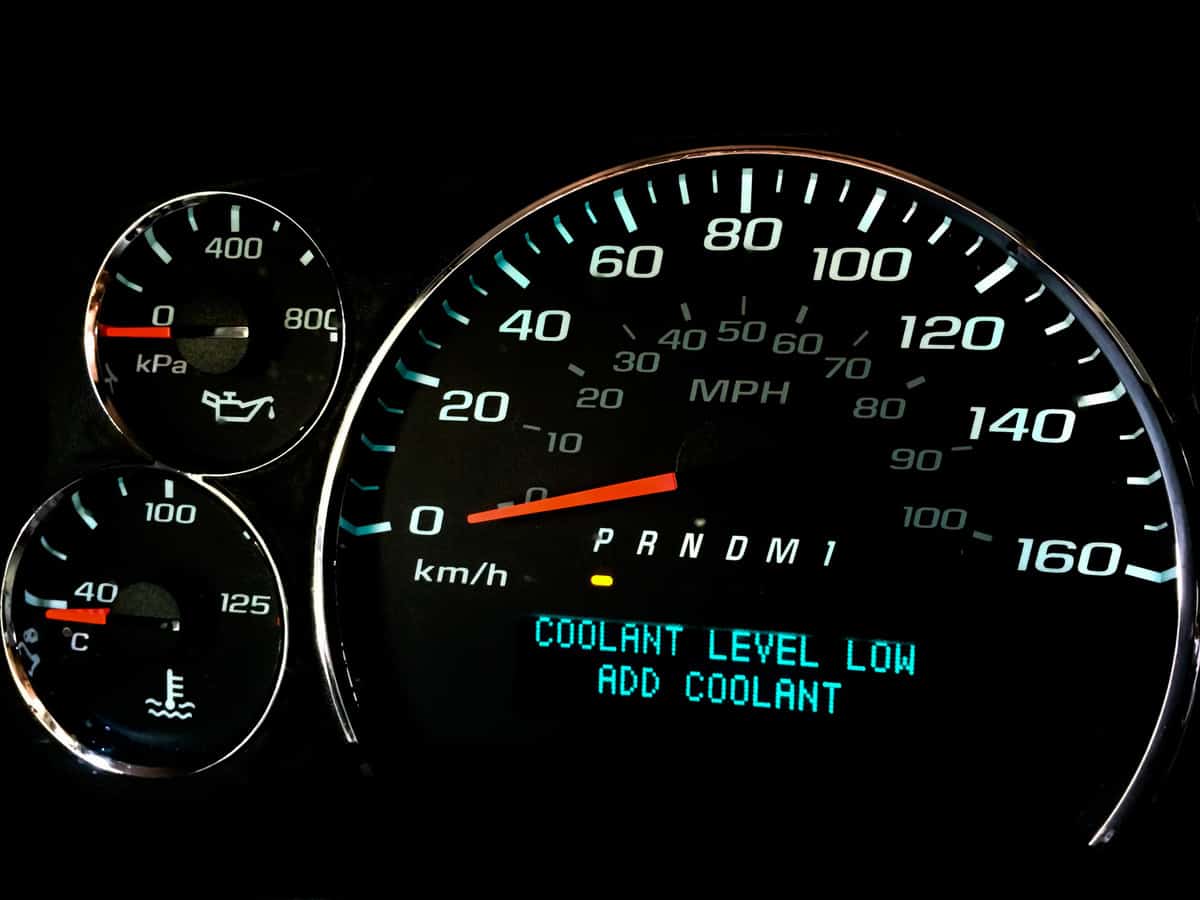Coolant plays an essential role in keeping your engine running at its best. It helps remove heat from the engine, preventing it from overheating and seizing up. But how long does it last? Let's look at how often you should change your vehicle's coolant.
Depending on the vehicle and the type of coolant used, most manufacturers recommend changing the silicated coolant every two years or 30,000 miles. However, some automakers have extended the interval to five years or 100,000 miles for extended drain coolant.
As you can see, there is quite a range when it comes to how often you should change your coolant. This article will discuss why the different intervals exist and when to change your coolant based on your vehicle and driving habits. Additionally, we will answer other questions about vehicle coolant, so read on!

How Often Should You Change The Coolant In A Car?

Coolant, also known as antifreeze, is a fluid that helps keep your engine from overheating. It circulates through the engine and absorbs heat, then releases it into the air. This prevents the engine from getting too hot and helps it run more efficiently.
Coolant is typically a 50/50 mix of water and ethylene glycol. It's important to use the right mix of coolant and water in your engine, as too much or too little can cause problems.
When mixed, the water helps keep the coolant from freezing in cold weather and boiling in hot weather. In addition, the ethylene glycol prevents corrosion and allows the coolant last longer.
There are two main types of coolant used in vehicles: silicated and extended drain coolant.
Silicated coolant is the most common type of coolant typically used in most vehicles. It contains silicates, which help protect the engine from corrosion.
An extended drain coolant is a newer coolant that can last longer than a silicated coolant. However, it doesn't contain silicates, so it's essential to check your owner's manual to see if this type of coolant is recommended for your vehicle.
Most manufacturers recommend changing the silicated coolant every two years or 30,000 miles. However, some automakers have extended the interval to as much as five years or 100,000 miles for extended drain coolant.
Why Do Coolant Intervals Vary?
The main reason for the different coolant change intervals is the type of coolant used in the vehicle.
As we mentioned, silicated coolant is the most common type of coolant. It contains silicates, which help protect the engine from corrosion.
However, these silicates can build up over time and eventually cause problems. That's why it's important to change the coolant every two years or 30,000 miles.
Extended drain coolant is a newer type of coolant that doesn't contain silicates. This means that it can last longer than silicated coolant.
However, extended drain coolant is only recommended for certain vehicles. Check your owner's manual to see if this coolant is recommended for your car.
Another reason for the different coolant change intervals is how the coolant is used in the vehicle.
Some vehicles have what's called a closed cooling system. This means that the coolant only circulates through the engine and doesn't come into contact with the air.
This system typically has a longer coolant change interval because the coolant doesn't need to be changed as often. Other vehicles have an open cooling system.
This means that the coolant circulates through the engine and comes into contact with the air. This type of system typically has a shorter coolant change interval because the coolant needs to be changed more often.
How Do I Know If My Car Needs A Coolant Flush?
There are some warning signs to watch for that can indicate your car needs a coolant flush:

The Engine Is Overheating
If you watch your temperature gauge and it seems like the engine is running hotter than usual, this could be a sign that your coolant needs to be flushed. Without coolant, the mechanical parts will start to overheat and eventually fail.
If you notice that the engine is overheating, pull over as soon as possible and turn it off. Then, call a tow truck to take your car to a mechanic.
There Is A Coolant Leakage
If you notice coolant leaks, this is another sign that your car needs a coolant flush. Coolant leakage can be caused by a variety of things, such as a cracked radiator hose or a faulty water pump.
The Coolant Level Is Low
If you notice that the coolant level is low, your car is losing coolant. This can be caused by a leak or by the coolant evaporating.
If the coolant level is low, add more coolant to the reservoir. If you add coolant and it doesn't seem to stay full, there is a leak somewhere in the system.
The Coolant Is Dirty
If you notice that the coolant is dirty, it needs to be flushed. Over time, the coolant will become contaminated with dirt, oil, and other debris.
This can cause problems with the way the coolant protects the engine. In addition, if the coolant is dirty, it will need to be replaced.
The Engine Is Running Rough
If you notice that the engine is running rough, this could signify a problem with the cooling system. In addition, the engine could be overheating, which can cause the cylinder to misfire.
Steam Coming From Engine
If you see steam coming from under the hood, this is a sign that the engine is overheating. But, again, you won't want to keep driving if this happens.
Pull over as soon as possible and turn off the engine. Then, call a tow truck to take your car to a mechanic.
Flecks Of Rust In Coolant
If you notice flecks of rust in the coolant, this is a sign of corrosion. The rust can damage the engine and cause leaks.
If you notice any of these warning signs, it's time to take your car in for a coolant flush. A mechanic will be able to check the level and condition of the coolant and flush the system if necessary.

Can You Lose Coolant Without Having A Leak?
Yes, you can lose coolant without a leak present. The coolant can evaporate over time, which will cause the level to drop.
If you notice that the coolant level is low, add more coolant to the reservoir. If you add coolant and it doesn't seem to stay full, something else is at fault.
This could be due to a bad head gasket, manifold leak, or several other things. You'll want to take your car in for a checkup if you notice this happening.
Do I Need Coolant In The Winter?
Yes, coolant is important in the winter. The coolant helps to keep the engine at a consistent temperature, which is vital for cold weather starts.
It's imperative to make sure your car has enough coolant before winter. If you don't, mechanical components can freeze and crack the engine block.
Check the coolant level before winter and add more if necessary. You should also have the cooling system checked by a mechanic to ensure everything is in good working order.
Can I Use Water Instead Of Coolant?

No, you should not use water instead of coolant. Water by itself will freeze in the winter and boil in the summer, which can damage the engine. Water only lowers the freezing point and raises the boiling point when mixed with glycol.
Coolant is designed to withstand extreme temperatures and protect the engine. Therefore, it's essential to use the correct type of coolant for your car.
For emergencies only, you can use water instead of coolant. But, make sure to take your car in for a flush as soon as possible.
Final Thoughts
Coolant is important for the proper functioning of your car's engine. So if you notice any of the above warning signs, it's time to take your vehicle in for a coolant flush.
A mechanic will be able to check the level and condition of the coolant and flush the system if necessary. It's also important to ensure your car has enough coolant before winter.
Made it to the end? Here are some other articles to read:
What Happens If You Mix Coolant Colors?
